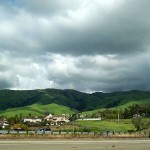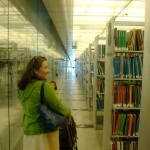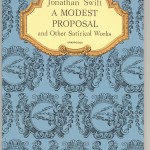 1.
1.
Twenty-one years ago, a fifteen-year old girl answered the phone. She was about to turn sixteen, and she had sent out invitations to her birthday party. On the other end of the line was a boy. He was calling back to tell her that he could come to the party. They’d never really had a conversation longer than quick greetings in the hall.
They talked for two hours.
The girl had never talked that long to a boy on the phone. She heard some music in the background. “What are you listening to?” she asked. “Oh, that’s me. I’m just playing around on the guitar,” he answered. Our girl, a sucker for a well-strummed chord, was impressed.
They talked for two hours, about the latest Van Halen album and movies, about English classes and waking up for their shared zero period band class. They talked about his girlfriend, and they talked about her boyfriend.
Over the next few months they talked through isolation, through loneliness. They called each other when her boyfriend and his girlfriend weren’t home. They didn’t see each other as potential more-than-friends. They just talked because the other was there to listen.
2.
Six months later, on the way home from a band trip, they talked through the aftermath of her breakup with her boyfriend. She cried; he stroked her hair. His girlfriend wanted to ride another bus, so our girl and the boy were sitting together.
As the school bus rumbled north on Highway 280 they sat in silence, her head on his lap. After a while, to distract her, he told her about the moonlit hills they were passing. He grew up near those hills. She listened as he told her about the amber streetlights that were lighting up, city after city, down the highway. She listened and watched as the Northern California darkness crept over the bus, soft as the fog creeping over those hills.
Months later, they talked through his breakup with his girlfriend. After all those conversations in isolation and seeming loneliness, the boy had realized that he had fallen for our girl.
And then the girl and the boy started dating. For a year, they were the couple who made out in hallway corners between classes, the couple who heard “Get a room!” during those embraces at Round Table and didn’t care.
Then the girl went to college. They talked around and then into one breakup.
And then they didn’t talk for nine months. Those nine months of heartbreak carved new reservoirs of empathy for the girl; to this day, she can remember how it felt to wake up and face the prospect of high-tide buy ventolin inhaler online pain washing onto the shore of her days.
At the end of the school year, the girl came back home. They talked their way cautiously back into dating again.
They moved in together. They got engaged. For the next three years they talked through the terror of the mid-twenties: what to do with my life? When does my life become our life? How? Why, and why not? The engagement ring came off her finger, and two days later, he placed it back on. She stormed out of their apartment, and he came after her. She hasn’t forgotten that.
They talked through her first round of rejections from graduate schools. When she heard about those, he picked her up from work. He told her he’d packed a bag, and told her to pick a direction (north or south) along one of the most beautiful highways in the United States.
She picked north. They got lost. But across the Golden Gate Bridge they found a sweet little town, nestled in the county north of the City they both loved, across the bay from their beloved university. They talked all the way up the curves of Highway One and back.
Eleven years ago this month, they got married in a corner of that town, enclosed in a green garden. There was something to be said for speaking love out loud, in front of their families and the friends from the circles of their lives.
3.
How to explain, twenty-one years after those two hours, that the girl and the boy stayed together?
The girl likes to think that it’s hard work that’s kept them together. And it has been work. They learned how to work together by studying together, sitting across countless café tables together. Now they work together to teach their daughters to read avidly and to dance playfully, to eat joyfully and to twirl aimlessly. And hard work is part of the story.
But the elemental truth of their alchemy is conversation: all those years of talking, all those years of listening. They still analyze everything together, from music to moments to meals to Mad Men. At the end of that first phone call, the girl couldn’t believe that two hours had passed. Twenty-one years later, the girl still can’t believe this much time has passed.
All she knows is this: On her worst days, what comforts her is the sound of his voice. On her best days, what makes her even happier is his voice in his body next to hers. She still wants that voice, forever and always.
Happy anniversary, Josh.






